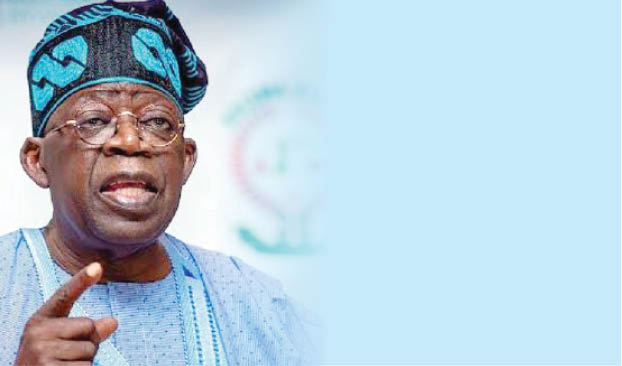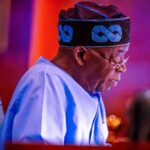President Bola Tinubu inaugural speech on May 29, 2023, gave a clear indication of this administration’s intent on rejigging the business climate of the country.
Six out of the seven takeaways from the president’s speech bordered on business. First, Tinubu reaffirmed that the era of fuel subsidy was gone. The president emphasised that his administration must create meaningful opportunities for youth, by honouring his campaign commitment of one million new jobs in the digital economy.
Tinubu said rural incomes shall be secured by commodity exchange boards guaranteeing minimal prices for certain crops and animal products. He also noted that monetary policy needed thorough house cleaning, saying the Central Bank must work towards a unified exchange rate.
It became clear to both the international community and Nigerians that the beat was about to change.
How Tinubu’s Appointments raised dust over federal character, others
FG nets N242bn from marine sector, targets $7bn oil & gas investment
Fuel subsidy removal
The removal of the fuel subsidy topped the list of President Bola Tinubu’s economic policies of 2023, with the removal of the age-long fuel subsidy, increasing the pump price of fuel by over 152 per cent, according to the Nigerian Bureau of Statistics (NBS).
The fuel subsidy removal saw a past-through effect on the cost of transportation, staple food items, clothing, and other goods.
The policy also hurt small business owners who power their businesses with PMS, resulting in an additional cost for goods and services.
Naira unification
One of the most controversial and landmark economic policies made by President Tinubu, was the attempt to float the naira against the dollar at the foreign exchange market.
The decision to float the Naira was based on the anticipation that doing so would diminish the premium (discrepancy) existing between the official market and the parallel market.
As a result, the naira was devalued by nearly 200% against the greenback. The floating of the naira has had a huge impact on the economy, particularly inflation. The headline inflation is about 33.6 per cent, which means Nigerians are paying more for commodities and staple foods
Moreover, food inflation, currently at over 40 per cent, adds to the pressure on the purchasing power of the masses.
Residing in Nigeria has become increasingly difficult, with the costs of essential goods reaching unprecedented heights. The abrupt removal of fuel subsidies and the decision to float the naira have led to a substantial spike in food prices.
This surge in food costs is posing a significant challenge for individuals and families. Nigerian households are cutting down on purchases and forgoing traditions as food prices keep rising relentlessly.
Incessant hikes in Customs duty for import
Closely linked to the floating of the exchange rate is the incessant hikes in Customs duty by the Central Bank of Nigeria (CBN), through the upward adjustment of the exchange rate for calculating import duties. This has pushed up production costs for manufacturers that import critical production inputs.
On June 24, 2023, Customs adjusted the exchange rate from N422.30/$ to N589/$; on July 6, 2023, it was adjusted to N770.88/$; on November 14, 2023, it was adjusted to N783.174/$; in December, it was adjusted to N951.941/$.
In the last quarter, a total of 28 rates were directed by the CBN, ranging from NGN 951.94 per USD 1 in January 2024 to a peak of NGN 1,662.35 per USD 1 in February 2024. While a singular exchange rate of NGN951.94 per USD 1 was maintained in January, February witnessed 15 different spot rates ranging from NGN 951.94 per USD 1 to NGN 1,662.35 per USD 1
The Comptroller General of the NCS, Bashir Adewale, in a recent engagement said: “The repercussions of these fluctuating rates have sent concerning signals to our stakeholders, affecting and disrupting activities. Beyond the speculation regarding potential gains it may have on NCS revenue, the implications on transaction volumes are significant and outweigh any possible benefits.”
Electricity subsidy removal
While Nigerians were searching for answers on how to cope with the elevated cost-of-living crises, the federal government commenced the phased removal of electricity subsidies.
In an abrupt move on April 3, the Nigerian Electricity Regulatory Commission (NERC) cancelled subsidies from Band A customers or those enjoying 20 hours of supply daily. The implication is said to be brutal; from N68 per kilowatt hour tariff, unit cost spiralled to N225KWh.
As expected, the increment has been met with resistance and agitation for reversal from the organised labour, and activists. The Manufacturers Association of Nigeria (MAN) projects that the hike would provoke factory closures and job losses.
Analysts have said in an era of hyperinflation, stagnant wages, and currency depreciation, these concerns are genuine.
Banks recapitalisation
The Central Bank of Nigeria (CBN) recently announced an upward review of the minimum capital requirement for commercial, merchant, and non-interest banks in Nigeria.
The CBN raised the minimum capital base for banks with international authorisation at N500 billion.
The apex bank also increased the minimum capital base for commercial banks holding national authorisation to N200 billion, and for those with regional authorisation to N50 billion. Merchant banks now have a minimum capital requirement of N50 billion, while non-interest banks holding national and regional authorisations must adhere to new minimum requirements of N20 billion and N10 billion, respectively.
The last bank recapitalisation was in 2005, when the minimum capital requirement for national commercial banks was increased from N2.0bn to N25.0bn (equivalent to $187m and worth only $32.5m today). This reduced the number of banks from 89 to 24. There have been 10 different phases of recapitalisation between 1952 and 2005 in Nigeria.
Analysts have said a larger capital base will enable banks to underwrite bigger levels of credit in the economy and ultimately generate higher income. The new single obligor limit based on the new capital will enable banks to finance large ticket transactions.
Presidential committee on fiscal policy and tax reforms
The president also set up a Presidential Committee on Fiscal Policy and Tax Reforms chaired by former Fiscal Policy Partner and Africa Tax Leader at PriceWaterhouseCoopers (PwC), Taiwo Oyedele, with experts from both the private and public sectors as members.
The committee has as its objective, the advancement of viable and cost effective solutions to issues such as the multiplicity of revenue collection agencies, the high cost of revenue administration, the excessive burden of compliance on ordinary taxpayers, the lack of effective coordination between fiscal and other economic policies within and across levels of government and poor accountability in the utilisation of tax revenues.
The Chairman, Mr. Oyedele, has said Nigeria has over 60 different forms of taxes and levies. Many of the taxes, he added, made life unbearable for the poor in society.
He said his committee was working to reduce taxes and levies to less than 10, which would be a decrease of 83.33 per cent.
Single-window project to ease import-export transactions
President Bola Tinubu inaugurated a committee for a National Single Window (NSW) to promote ease of import and export trade in the country.
The single-window system, also known as the single-window concept, is a trade facilitation idea enabling international traders to provide required information through a single agency, streamlining cross-border transactions.
The president said: “Paperless trade alone is estimated to bring an annual economic benefit of around 2.7 billion US dollars. Countries like Singapore, Korea, Kenya and Saudi Arabia have already seen significant improvement in trade efficiency after implementing the Single Window System.”
Assessing gains and losses of the policies
The president of the Nigeria labour Congress (NLC), Comrade Joe Ajaero, at the 21st Daily Trust dialogue argued that the Tinubu administration, driven by neoliberal principles as dictated to it by the World Bank and the International Monetary Fund (IMF) embarked on a series of economic reforms upon assuming office in May 2023.
These reforms, he noted, were ostensibly designed to address perceived fiscal challenges and promote economic sustainability. However, the policies implemented have been met with mixed reactions, with both positive and negative consequences for different segments of the population.
He said: “It is important to state the fact that the key policy of the hasty hike in the price of petrol does not fit into the procedure for carrying out a reform, especially when we expect such reforms to have a serious positive impact on the economy”.
The tough times won’t last, according to Benedict Oramah, president of the African Export-Import Bank (Afreximbank), adding that reforms were necessary to revamp the country’s economy, stressing that things will soon return to normal.
“Nigeria’s choice to float the Naira and remove petrol subsidy are the right decisions,” said Oramah.
“Once you have been able to stabilise the exchange rate, prices will adjust, markets will adjust, and things will return to normal,” he added.
On June 12,2023, Tinubu asked Nigerians to painfully persevere and sacrifice a little more for the survival of the country. “For your trust and belief in us, I assure you that your sacrifice shall not be in vain. The government I lead will repay you through massive investment in transportation infrastructure, education, regular power supply, healthcare and other public utilities that will improve the quality of lives,” he promised.

 Join Daily Trust WhatsApp Community For Quick Access To News and Happenings Around You.
Join Daily Trust WhatsApp Community For Quick Access To News and Happenings Around You.



